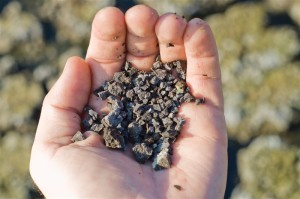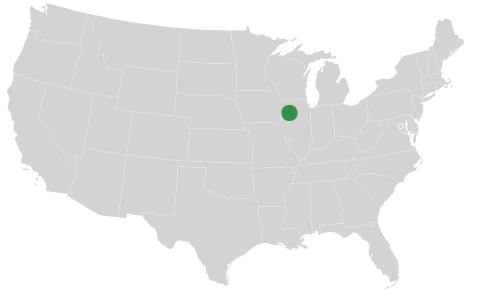 I talk to farmers all of the time about the condition of their soil. There’s certainly no such thing as “perfect soil”. A lot of the farmers I talk to have specific problems with their soil… but no solutions.
I talk to farmers all of the time about the condition of their soil. There’s certainly no such thing as “perfect soil”. A lot of the farmers I talk to have specific problems with their soil… but no solutions.
As farmers, we all work with the soil we have. I bet you would love to have some surefire solutions to the problems you have in your soil because, of course, better soil means better crops. That means more profit and more money to your bottom line. Finding ways to increase the quality of your soil can be a real challenge.
Here is some good news. Adding organic compost to your soil – no matter what kind it is – can alleviate problems and improve crop yield.
We’ve seen lots of soil in our work, and have seen lots of problems. Here are 4 of the most common soil problems we’ve found, and how adding an organic compost like humus can help improve the soil quality.
1. Compacted Soil – this is a common problem found on a lot of farms . Good soil is loose and crumbly with lots of air spaces in it. Adding humus to compacted soil will return air spaces and softness, allowing plant roots to penetrate the soil more easily, going deeper to add greater stability to the plants and offer better drought resistance.
2. Sandy Soil – because this soil contains large particles and the accompanying large air spaces between them, it drains quickly and therefore dries out readily. Humus added here will act as a sponge, absorbing and holding water and nutrients far longer.
3. Clay Soil – these are dense and thick, so they contain small air spaces. And since the soil particles tend to stick together, water fills the air spaces and drains slowly which causes roots to rot. Amending this soil with humus will help keep the soil particles from sticking together so tightly, creating larger air spaces that drain more easily.
4. “Dead” Soil – soil tends to become sterile (i.e. – dead) over time as its nutrients are leached out by adverse weather conditions, removal of topsoil, or over-cultivation. This causes the number and activity of good microorganisms in the soil to be depleted. While adding chemical fertilizers will increase nutrients in the soil, that is not self-sustaining. Adding humus to this soil type adds new microorganisms into the soil and provides conditions for them to multiply for years to come, thus bringing the soil back to life.
Amending your soil with an organic compost like humus – no matter what type you have – will improve the general health of your soil and improve your crop yields.


